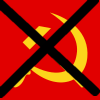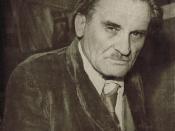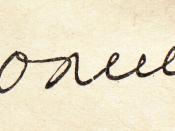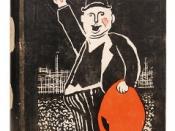In Envy, with his utterly strange and almost despicable main character, Olesha seems to be scathingly criticizing the Soviet system of values, ideals, and government. He juxtaposes Babichev the Communist with Kavalerov the Capitalist. Babichev is wealthy and successful in a way that Kavalerov envies, wishing that the system were different so that he, too, could rise to the top, but through his own individuality--but, as he realizes, with Communism "there's no way for an individual to achieve success...I want to demonstrate the force of my own personality. I want my own glory....And now I'm told: Not even the most remarkable personality, let alone yours, is worth anything" (267).
Though Olesha himself was a staunch supporter of Communism during the time of the Revolution, his utilization of the anti-Communist character Kavalerov and his above speech seems to be a criticism of the system on Olesha's own part. And while as a reader I pity Kavalerov for being trapped in this Communist cage, it seems as though Olesha is denouncing Capitalism at the same time by portraying his character as so unlikable.
On the one hand, we have the Communists, such as Babichev, who come off as pompous, arrogant, uncaring, and strangely cold. On the other hand, we have the Capitalists, such as Kavalerov and Ivan Babichev, who come off as weak, pathetic, and miserable failures. While this is also a psychological study of personalities such as these, it seems that Olesha has become disillusioned with the Soviet government, and is using these undesirable characters to convey the flaws and failures of both major systems.





